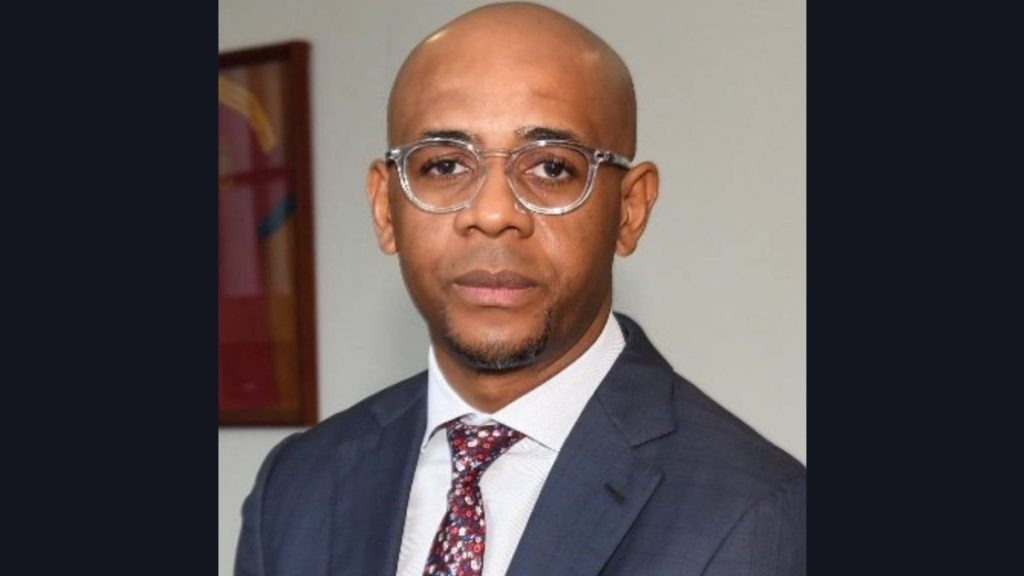Equatorial Guinea official arrested over 400 sex tapes with President’s sister, high-profile women
3 min read
A senior government official in Equatorial Guinea has been arrested after allegations surfaced that he secretly recorded more than 400 explicit videos, including those featuring the wives of prominent public figures, including government ministers and high-ranking officials. The official, Baltasar Engonga, 54, is the Director General of the National Financial Investigation Agency (ANIF), a role that gave him significant power and influence in the country.
The scandal first emerged during a separate investigation into fraud charges against Engonga, which led authorities to search his home and office. During these searches, investigators uncovered a large stash of CDs containing explicit content, prompting a deeper inquiry into his activities. The recordings, which reportedly include intimate encounters filmed in various locations, were said to involve the spouses of top government officials, including the wife of the Director General of Police and other high-profile figures.
Among those implicated in the videos are also close relatives of President Teodoro Obiang Nguema Mbasogo, including his sister. These videos were allegedly filmed in various settings, including Engonga’s office, where the national flag was reportedly visible in the background, raising concerns about potential misuse of state resources and violation of public ethics. While the videos are believed to have been consensual at the time of filming, their subsequent leak online has caused widespread outrage and sparked a national controversy.
The incident has become one of the most significant scandals in Equatorial Guinea’s recent history, with local media calling it a “flagrant violation” of ethical standards. Noticias Ahora EG, a prominent news outlet, described the revelations as unprecedented, revealing the extent to which high-ranking officials may have been involved in compromising behavior.
Engonga, who is nicknamed “Bello” locally, has held a powerful position in the government for many years, and his arrest has sparked public debate over the ethics of public servants and the abuse of authority. As head of the National Financial Investigation Agency, Engonga had access to sensitive government information and considerable influence over public affairs, making the scandal even more significant.
Equatorial Guinea’s Attorney General, Nzang Nguema, has addressed the matter publicly, explaining that consensual relationships, as shown in the videos, are not considered criminal under the current legal framework. However, he expressed deep concern over the potential health risks involved, particularly the spread of sexually transmitted infections (STIs), given the number of individuals reportedly involved in these acts.
Nguema also emphasized the importance of providing a safe and supportive environment for individuals to report non-consensual sexual activity or abuse. This statement reflects growing concerns about the need for stronger measures to prevent exploitation or coercion, particularly in a country where public accountability remains a delicate issue.
In response to the scandal, the government acted swiftly, suspending several officials who had been implicated in inappropriate sexual conduct within government offices. This move is part of a broader “zero tolerance” policy aimed at restoring public trust and reinforcing ethical standards within the government. Equatorial Guinea’s Vice President, Teodoro Nguema Obiang Mangue, condemned the actions of the implicated officials in a public statement on X (formerly Twitter), asserting that “ethics and respect are fundamental” to the administration’s values and reaffirming the government’s commitment to upholding integrity in public service.
The scandal has put a spotlight on the country’s efforts to enforce professional standards across its institutions, particularly in its leadership. Authorities have vowed to take further actions to prevent future breaches of trust, such as implementing stronger internal regulations and creating a more transparent and ethical environment within government agencies.
As the investigation continues and more details of the case unfold, the scandal threatens to shake the public’s confidence in the country’s leadership, highlighting the need for ongoing reforms in governance. With Equatorial Guinea’s government facing growing scrutiny both at home and internationally, officials have pledged to restore a sense of accountability and moral conduct, striving to ensure that such breaches of trust are not repeated in the future.
This high-profile case serves as a stark reminder of the importance of transparency, ethical behavior, and the need for systems that protect both public figures and ordinary citizens from the abuse of power. While the investigation progresses, the focus will likely shift to how the country can rebuild trust in its institutions and prevent similar scandals from tarnishing its image in the global arena.







